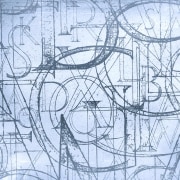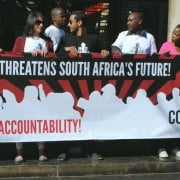|
Getting your Trinity Audio player ready...
|
The high levels of corruption in South Africa should be seen as a form of sacrilege of the graves of those who died fighting for freedom in Sharpeville on March 21 1960 and elsewhere in the country.
Corruption is undermining the very rights that many sacrificed to gain.
Mind you, Sharpeville is the very place where the ANC-led government chose to launch the nation’s Constitution in May 1996.
The Constitution enshrines the rights to dignity, equality and freedom for all. But sadly, most of these rights, including those of basic service delivery, education and health are still unachievable for many poor South Africans.
The pain of not being able to access basic services is felt more deeply when people see elected and public officials divert resources meant to improve the community into their pockets.
Ordinary South Africans are becoming impatient and are outraged. This much is obvious judging by their response to Corruption Watch since its launch in late January.
The reported cases confirm the persistent discrimination and suffering of the poor.
One of the first cases reported relates to the right to health. The complaint is about a hospital in Limpopo that has been without water for more than two years.
The complainant tells of patients going out in search of clean water because the privately owned trucks hired to deliver water are failing them. The truck owners are said to be closely connected to hospital managers and municipal authorities.
Rightfully so, the complainant wants to know why the hospital has continued with this expensive operation instead of identifying a permanent solution.
The question is: who is benefiting from this reckless management? Certainly, not the patients.
Another complainant from Mpumalanga refers to a company that was awarded a R1.9?million tender to build 14 classrooms and an administration block.
The company has never laid a brick and the matter was reported to the department of education and other authorities. To date, nothing has come of the reporting and the pupils are kept away from accessing a decent environment that promotes learning.
Corruption has two consequences.
Firstly, it diverts public resources to the pockets of a few and, secondly, it leads to an erosion of trust that citizens have in their elected leaders and public servants.
The only way to restore trust is for the leaders to account for what they are doing, not doing or cannot do.
The cost to our economy is significant. An estimated R30 billion is said to have been lost to corruption last year alone, according to the previous head of the Special Investigating Unit.
Schools, hospitals and jobs could have been built instead.
In the (businessman Hugh) Glenister judgment, the Constitutional Court highlighted the following about corruption:
“It lowers the moral tone of a nation, and negatively affects development and the promotion of human rights. As a country, we have travelled a long and tortuous road to achieve democracy.”
Indeed, this is the case.
The participation of the public is integral to ensuring the elected leaders are held accountable.
Corruption Watch is meant to give people the opportunity to speak the truth and mobilise against this scourge. The public should continue to report their experiences of corruption.
It is also an opportunity for our leaders and public officials to tell the truth to the people. Corruption Watch’s communication platforms are open to all. I hope that those in power take this opportunity.
Vavi is the general secretary of Cosatu and a board member of Corruption Watch.
This article originally appeared in City Press on 18 March 2012.
Corruption is undermining the very rights that many sacrificed to gain, general secretary of Cosatu and Corruption Watch board member Zwelinzima Vavi wrote in City Press.







